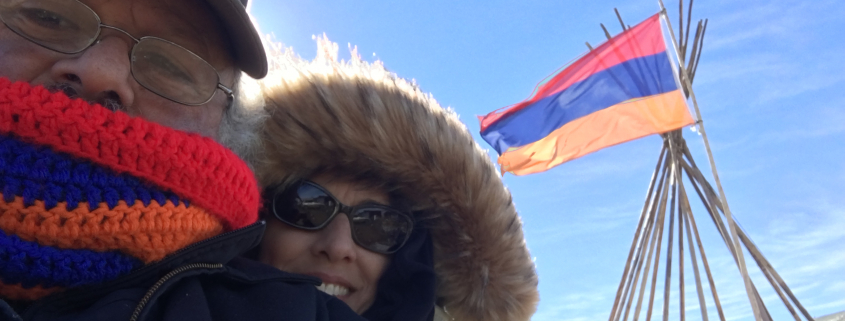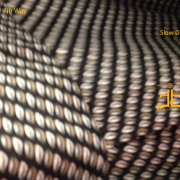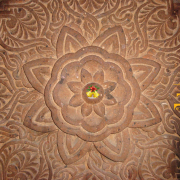Indigenous Peoples’ Day
Armodoxy for Today: Indigenous Peoples’ Day
A few years ago, by presidential proclamation the second Monday in October became known as Indigenous Peoples’ Day here in the United States. It’s a holiday that celebrates and honors indigenous American peoples and commemorates their histories and cultures. At least for now that’s what the intent is, and soon enough, as people become more familiar with the holiday, sales for houseware and vacations will creep into the dialogue.
Indigenous Peoples’ Day began in the 1990s as a counter-celebration to the Columbus Day holiday in October, honoring the explorer Christopher Columbus who, “Sailed the ocean blue in 1492.” The objection to Columbus Day came from people who pointed to the violent history of colonization, not only in the 15th century, but throughout the centuries in the Western Hemisphere.
The Indigenous Peoples’ Day holiday reverberates especially heavy with me today. Only a few weeks ago, Artsakh (Nagorna Karabagh), the indigenous home of the Armenian people, was violently stolen from the Armenian people. A historic land inhabited by Armenians for centuries is decorated from one side of the country to the other with churches and monuments of the Armenian Christian faith, attesting to the inhabitants and their history on that land. Tragically, the indigenous people were subjected to starvation, deprived of health services and, in that frail condition, the weakest of the population were killed as a threat to the rest of the inhabitants. Finally, the Armenians were forced to surrender their land to the Azerbaijan government.
I get it. I understand why Indigenous Peoples’ Day has to be remembered. When we were kids, we were given a school holiday for Columbus Day. I know how hurtful it will be in a few years when the Azeri school children are treated to an Aliyev holiday, recognizing that he (the President of Azerbaijan) stripped the land of Artsakh of Armenians.
Unfortunately, our celebrations are mostly built upon the accomplishment of warriors. Let us never forget that it is the victors who write history. A small population of people, as the Armenians are, will have a history that always must be defended against rewrites.
In February of 2017, my wife and I flew out to North Dakota to stand with the indigenous people at Standing Rock. There was a pipeline going through their land, which they referred to as “The Black Snake.” We spent several days, walking “In their shoes.” I take to heart the words of Rev. Dr. Martin Luther King who said, “In the end, we will remember not the words of our enemies, but the silence of our friends.” We stood with several people who had come to protest. At that gathering, at the village, set up on the icy shore of the frozen lake, we stood with protesters, some for the sake of the environment, some against government policies, others because it was the place to be, or, like us, because we found a common thread in our histories – between the Armenian people and the Indians at Standing Rock – that we needed to share. One man said to me, “We’re all here for different reasons.” That’s for sure. That’s why we were there, to celebrate the different reasons that propel humanity. In other words, the spiritual Indigenous Peoples’ Day – where we understand we are all indigenous to our planet.
Our only hope for survival as humankind is connected to our ability to respect one another, respect the uniqueness of each person. Respect is built upon understanding and walking in the shoes of others is a means of understanding, of showing empathy. In Armenian, we have an expression, tzav’t danem which literally means, “let me take your pain,” but it is more powerful in its true meaning, of “let me feel, and therefore understand, your pain.”
Everyone feels pain. Everyone has felt pain and defeat. Indigenous Peoples’ Day should also give us an opportunity to empathize with others, to have goodwill toward one another to bring, Peace on Earth.
Let us pray, O Lord Jesus Christ. At your birth, the angels proclaimed your purpose for being with us: Peace on Earth, Good will toward one another. I thank you for the elements that make me who I am. As I celebrate my uniqueness as your creation, let me never forget that I belong to the larger family of humanity and let my actions and work be to promote a better understanding of people, each of us, as indigenous inhabitants of this planet. Amen.
Cover photo: Standing “In His Shoes” at Standing Rock, North Dakota. Listen to the Podcast 2017

 Fr. Vazken 2017
Fr. Vazken 2017





 2014 Fr. Vazken
2014 Fr. Vazken
Leave a Reply
Want to join the discussion?Feel free to contribute!